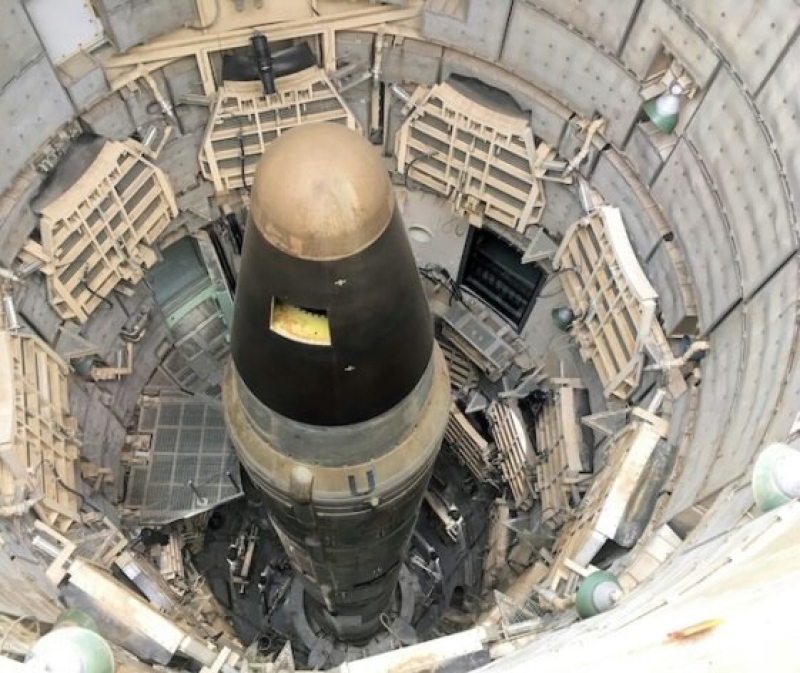- Heads of Sonali Bank, IDRA, and SBC resign citing personal reasons |
- Fakhrul calls attack on Iran 'horrible' |
- AI Moves Closer To Decoding Human Thoughts |
- UNESCO Calls Iran School Strike Grave Violation |
- Oil Jumps, Asian Stocks Slide On Gulf Tensions |
Nuclear Disarmament Talks Must Remain a Global Priority

Titan II ICBM - decommissioned nuclear missile - at the Titan Missile Museum, Green Valley, Sahuarita, Arizona.
In recent days, nuclear-armed state leaders have flouted non-proliferation norms, openly projecting nuclear strength.
On 27 October, Russian President Vladimir Putin unveiled a new nuclear-powered missile capable of extended flight and evading missile defense systems, reinforcing Russia’s nuclear posture since the Ukraine conflict began in February 2022.
Two days later, former U.S. President Donald Trump announced plans to resume nuclear testing for the first time in three decades, citing other countries’ programs. Experts suggest China’s expanding nuclear arsenal has prompted calls in Washington to modernize U.S. nuclear forces.
Despite decades of awareness about the dangers of nuclear weapons, global arsenals continue to grow. As of June 2025, more than 12,400 warheads exist, with the U.S. and Russia holding 90% of them. SIPRI reports that most nuclear states modernized arsenals in 2024, and China now possesses 600 warheads. The UK, France, and North Korea are also expanding nuclear capabilities.
Recent conflicts, such as India-Pakistan aerial battles, have highlighted the catastrophic risk of nuclear escalation. European nations, including France, the U.K., Germany, Denmark, and Lithuania, are also strengthening deterrence measures.
William Potter, Director of the James Martin Center for Nonproliferation Studies, warns that miscalculations in a climate of mistrust could increase the risk of nuclear use. He stressed that the erosion of the political climate for arms control makes disarmament more urgent.
The NEW-Start treaty, the last major U.S.-Russia arms control agreement, is set to expire in February 2026, although both sides have considered a voluntary one-year extension. Meanwhile, advocacy for nonproliferation and disarmament continues globally, with the UN promoting awareness since its founding in 1945.
New technologies such as artificial intelligence (AI) are increasingly integrated into nuclear forces, raising concerns over destabilization. Experts stress the need for governance frameworks to mitigate escalation risks while preserving human control.
Potter emphasized that nuclear disarmament is critical today. Policymakers must act boldly to reduce nuclear risks, uphold international treaties, and educate future generations on the dangers of nuclear weapons.

